In 2014, Recovery Based Engagement Support Teams (RBEST) was implemented as San Bernardino County’s response to Laura’s Law, in an effort to voluntarily engage individuals with untreated severe mental illness into treatment.
RBEST is a voluntary, client-centered program which provides community (field-based) outreach and engagement services to individuals living with untreated mental illness. Our objective is to “activate” and link individuals to appropriate treatment, which may include outpatient mental health treatment, substance use treatment, and intensive wraparound support. Our primary focus is to meet the initial needs and goals of the individual, eliminate obstacles through engagement and link the individual to appropriate treatment.
What is the purpose of RBEST?
RBEST strives to connect individuals to appropriate behavioral health services and resources by reducing barriers, providing education, and creating a supportive system of care. The goal is to help individuals living with a serious mental illness to better understand their needs, advocate for themselves, and achieve health and wellness, however they define it.
We envision a community in which RBEST staff can walk alongside individuals through their journey to recovery, without judgement or bias. Through building trust and linking to community-based resources, RBEST supports individuals living with a severe mental illness encouraging healthy, independent, and fulfilling lives.
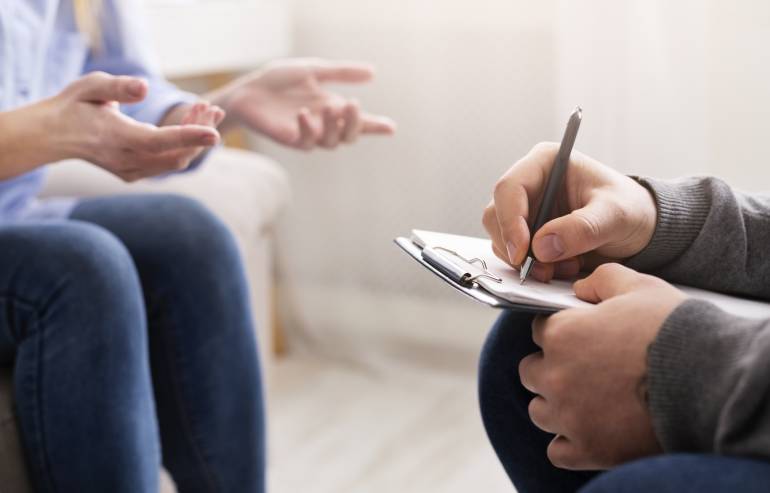
RBEST-Assisted Outpatient Treatment (Laura's Law) Implementation Overview
This training provides a brief background of Laura’s Law, eligibility for referral, evaluation and petition process, a brief overview of conservatorship, and the collaborative process with our community partners.

RBEST-Assisted Outpatient Treatment (Laura's Law) Referral Form

Laura's Law or CARE Act?
The primary difference between Laura’s Law and CARE Act is the criteria required to enter the program. To learn more about CARE Act click here.
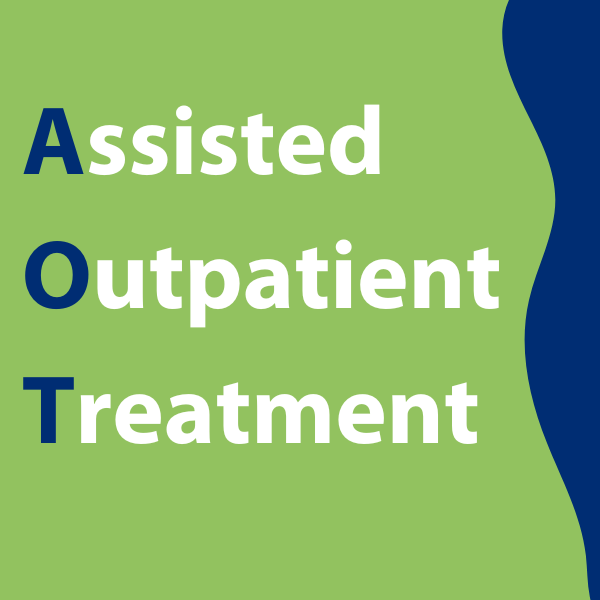
What is Assisted Outpatient Treatment?
The Recovery Based Engagement Support Teams (RBEST) program serves as the Department of Behavioral Health (DBH)’s implementation of Laura’s Law, providing initial outreach and engagement in addition to Assisted Outpatient Treatment (AOT). RBEST partners with other San Bernardino County Agencies such as, but not limited to, County Counsel, Public Defender, Public Guardian and the Sheriff’s Department, to assist individuals living with severe mental illness and their loved ones.
The DBH RBEST AOT has two main components:
- Outreach and engagement
- Treatment
Outreach and engagement is provided by RBEST throughout the entire process. Services may include:
- Employment support
- Mental health services
- Applying for benefits such as Medi-Cal and Social Security Income
- Provide referrals to food banks, clothing, and shelter
- Provide referrals for substance use treatment
- Provide referrals to a primary care physician
- Education services to families learning to live with an individual with a mental illness
For individuals entering the court process, a DBH community-based, mobile, multi-disciplinary behavioral health team will provide treatment plans specific to the individual’s needs. AOT recipients will be eligible to receive the following treatment services:
- Full Service Partnership (FSP) intensive client-directed treatment and case management services, including obtaining community residential housing
- Assessment of needs
- Development of treatment plan that includes:
- Outreach to families
- Coordination of access to a number of services, including medications, psychiatric and psychological services, and substance use treatment
- Education/understanding and management of symptoms
- Advocacy
- Linkage with appropriate services as well as monitoring follow-through with treatment services
The goal of both components is to have a respectful communication and supportive relationship with the individual to help find services that meet their needs.
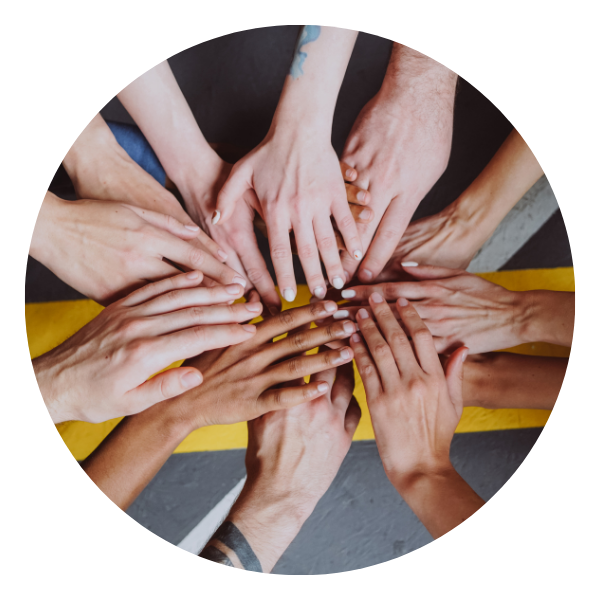
How does the program work?
Recovery Based Engagement Support Teams (RBEST) are dedicated teams that will reach out to the referred individual. The team will provide outreach and engagement by going out to the individual’s home or location in the community to build a trusting relationship, encourage acceptance to treatment and help navigate the behavioral health system. This team is made up of different types of professionals, including individuals with lived experiences.
In certain cases, the program can elect to petition the court for Assisted Outpatient Treatment (AOT), if engagement remains unsuccessful.
Who is eligible for Assisted Outpatient Treatment?
Adults, 18 years or older who:
- Are experiencing behaviors and symptoms associated with severe mental illness (SMI)
- Have a history of treatment non-compliance, as evidenced by one of the following:
- Two occurrences of hospitalizations or mental health treatment while incarcerated within the last 36 months
– OR – - One of more serious acts or threats of violence towards themselves or others within the last 48 months
- Two occurrences of hospitalizations or mental health treatment while incarcerated within the last 36 months
- Are unlikely to survive safely without supervision and condition is substantially deteriorating
- Need services and support to prevent relapse or deterioration leading to grave disability or harm to others
- Participation in Assisted Outpatient Treatment is the least restrictive alternative
- Are likely to benefit from participating in Assisted Outpatient Treatment
If you do not meet the requirements above, options for assistance are still available from the San Bernardino County Department of Behavioral Health, to access these services, call (888) 743-1478.
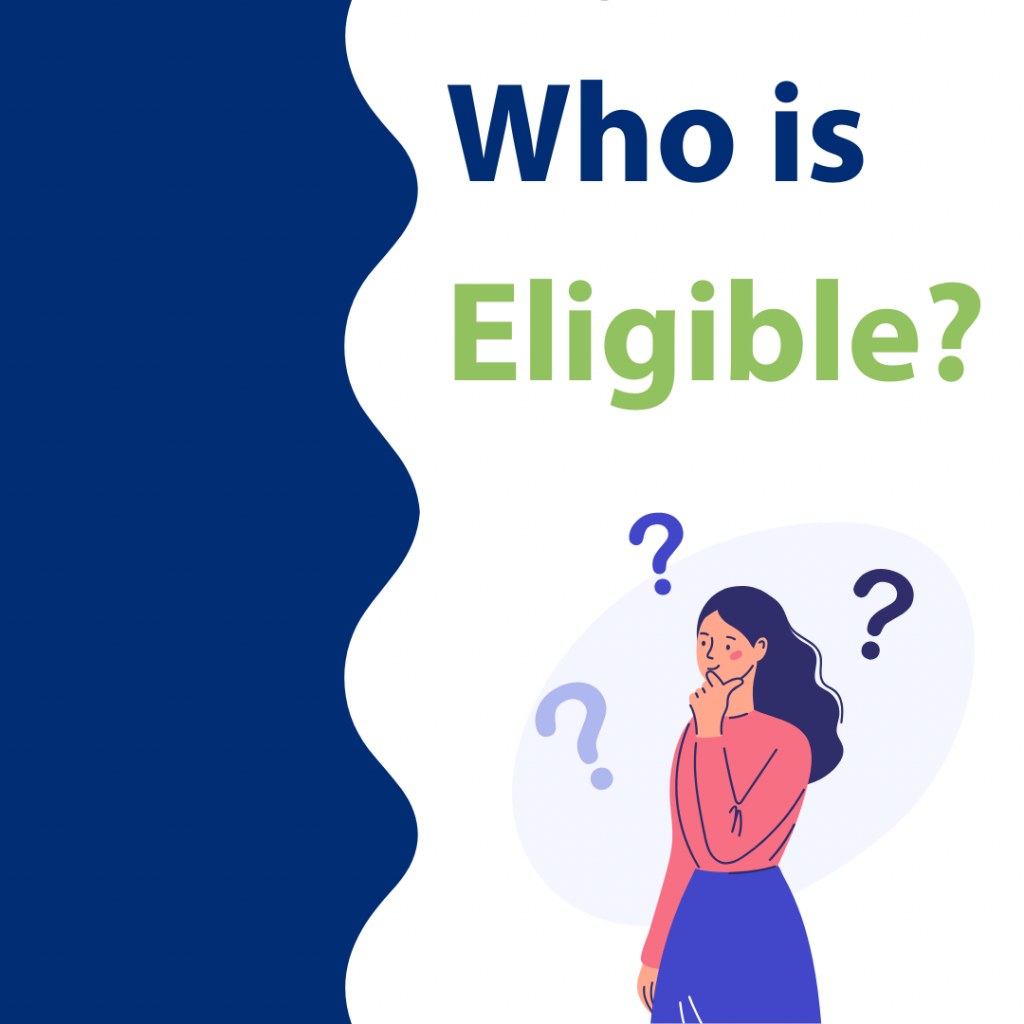
Who can refer to Assisted Outpatient Treatment?
| Family/Household | Community |
|---|---|
| An immediate family member: • Spouse • Parent • Sibling • Adult child • An adult with whom the individual resides | • Licensed behavioral health professional treating the individual • Director of a hospital in which the individual is hospitalized • Director of any public or private agency, treatment facility, charitable organization, or licensed residential care facility where the individual is a patient or resident • Peace Officer, Parole Officer, or Probation Officer that is supervising the individual • Judge of a superior court |
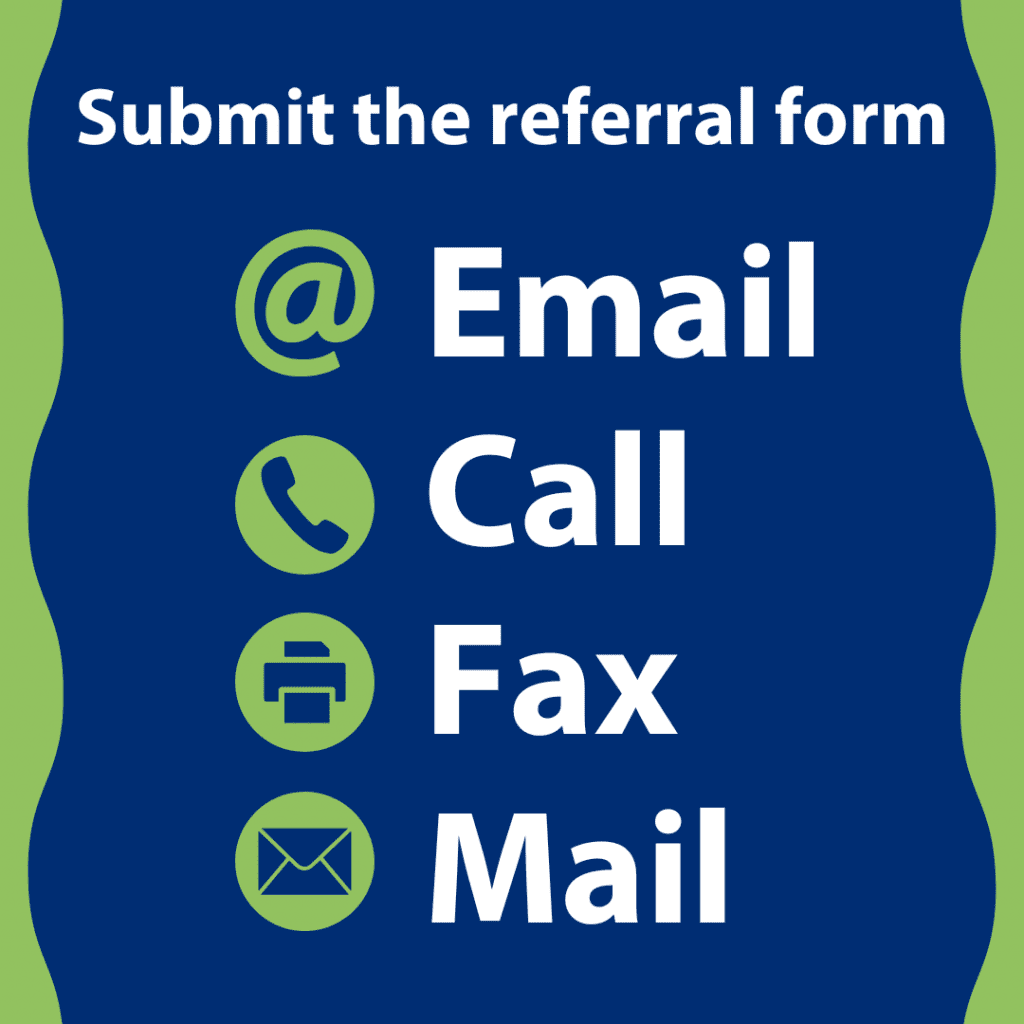
How can I make a referral?
Complete the referral form below.
- Submit the referral form through one of the methods below:
- Email: DBHRBEST@dbh.sbcounty.gov
- Call (909) 421-9452
- Fax (909) 421-4686
- Mail to:
San Bernardino County, Department of Behavioral Health
Recovery Based Engagement Support Teams (RBEST)
850 E Foothill Blvd, Rialto, CA 92376
- For assistance completing or submitting the referral form, please call (909) 421-9452.
- If you believe that the individual meets Laura’s Law criteria, please check the box on the referral for “assess for Laura’s Law criteria” and provide additional information. All incidents regarding hospitalizations or act/threat of violence should be indicated on the referral with any dates that you can provide.
What happens next?
- All referrals are reviewed upon submission.
- The referral will be reviewed by the RBEST clinical team.
- An RBEST engagement team will be assigned and work to engage the individual to accept services voluntarily.
- If, after multiple engagement attempts, the team finds the individual meets Laura’s Law criteria, DBH may move forward with court proceedings to request an order for Assisted Outpatient Treatment.
Community-based mobile crisis response teams are available in English and Spanish 24/7/365 – Call (800) 398-0018 or text (909) 420-0560.
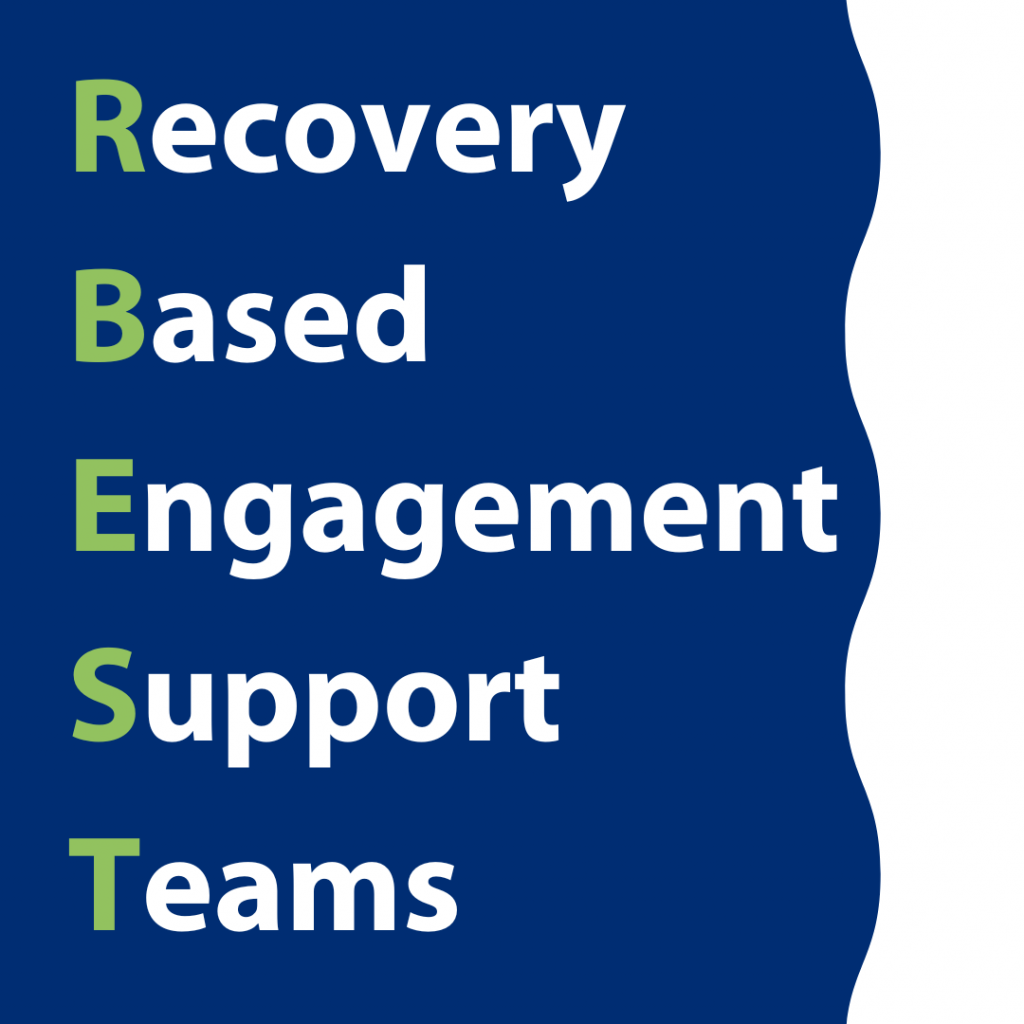
RBEST – AOT Services
If an individual meets criteria under Laura’s Law and continues to decline voluntary services and the court mandates participation in Assisted Outpatient Treatment (AOT), the following services will be provided:
- Full-Service Partnership (FSP) intensive client-directed case management and treatment services, including evaluating the need for community residential housing
- Community-based, mobile, multidisciplinary, highly trained mental health team
- Assessment of client needs
- Development of client plan
- Linkage with appropriate services as well as monitoring of follow-through with services
- Plans for services that includes:
- Outreach to families
- Coordination of access to medications, psychiatric and psychological services, substance use services, supportive housing, vocational rehabilitation, and veterans’ services
- Advocacy
- Education/understanding and management of symptoms
What is the difference between Laura’s Law and the CARE Act?
Both Laura’s Law and CARE Act are integrated into the existing Recovery Based Engagement Support Teams (RBEST) to engage individuals wherever they are located (Home, Inpatient Hospital, Park, etc.) to build a strong relationship that connects the individual to appropriate services and adds an intensive field based treatment response. Both involve a civil court process that allows the Department of Behavioral Health to provide treatment to those who have otherwise been unsuccessful in voluntary services.
Laura’s Law | CARE Act | |
|---|---|---|
| Eligibility Criteria | A specific mental health or substance use disorder diagnosis is not required, but there must be evidence of a history of treatment noncompliance | Individuals must have a diagnosis on the schizophrenia spectrum or other psychotic disorder |
| Treatment Duration | Authorizes treatment for up to 6 months | Authorizes treatment for up to 12 months or, if extended, 24 months |
| Who Can Make a Referral | DBH accepts referrals for individuals who may be eligible. If after investigation, DBH determines the individual does meet criteria, the County Behavioral Health Director may file a petition for Assisted Outpatient Treatment (AOT) | The court accepts petitions filed directly by family members, service providers, and other authorized parties, per statute. |
Frequently Asked Questions
Expand All/Collapse All
What is AOT?
AOT is the Assisted Outpatient Treatment program offered through the San Bernardino County Department of Behavioral Health. Also known as “Laura’s Law”, the program is a response to Assembly Bill 1421 (AB 1421).
What is the purpose of AOT?
The AOT program is designed to assist severely mentally ill individuals, who are not actively participating in treatment. These individuals are at risk of their health declining or being held under WIC 5150 (involuntary psychiatric hospitalization hold). The program is designed to encourage voluntary acceptance of services. In severe situations the Department of Behavioral Health (DBH) can request court-ordered participation.
How does the program work?
Recovery Based Engagement Support Teams (RBEST) are dedicated teams that will reach out to the referred individual. The team will provide outreach and engagement by going out to the individual’s home or location in the community to build a trusting relationship and encourage acceptance to treatment and help navigate behavioral health system. This team is made up of different types of professionals and individuals with lived experiences.
In certain cases, the program can elect to petition the individual in court-ordered treatment, if ongoing resistance to treatment is evident.
What Services are offered through the AOT program?
RBEST AOT has two main components:
- Outreach and engagement
- Treatment
Outreach and engagement are provided by RBEST throughout the entire process. Services may include:
- Employment support
- Mental health services
- Applying for benefits such as Medi-Cal and Social Security Income
- Provide referrals to food banks, clothing, and shelter
- Provide referrals for drug and alcohol treatment
- Provide referrals to a primary care physician
- Education services to families learning to live with an individual with a mental illness.
For individuals entering the court process, DBH will provide treatment plans specific to that individual’s needs. AOT clients will be eligible to receive the following treatment services:
- Full Service Partnership (FSP) intensive client-directed treatment and case management services, including obtaining community residential housing.
- Community-based, mobile, multi-disciplinary behavioral health team.
- Assessment of needs
- Development of treatment plan that includes:
- Outreach to families
- Coordination of access to a number of services, including medications, psychiatric and psychological services, and substance use treatment.
- Education/understanding and management of symptoms.
- Advocacy
- Linkage with appropriate services as well as monitoring follow-through with treatment services.
The goal of both components is to have a respectful communication and supportive relationship with the individual to help find services that meet their needs.
Does the individual need to have a behavioral health condition to qualify for AOT?
Yes, AOT is a program for individuals who have an untreated, severe, and persistent behavioral health disorder, who needs assistance with following through with necessary outpatient behavioral health treatment, who often uses crisis services (police, crisis walk-in center, psychiatric hospital and emergency department) without patient follow-up treatment and are not able to advocate or access services independently. Having a substance use disorder alone without behavioral health condition is not eligible for AOT.
Can AOT force an individual to take medication?
All behavioral health services are voluntary including psychiatrist and medication management. Medication support services can be offered but medication cannot be forced.
Can AOT mandate substance use treatment?
All behavioral health services, including substance use treatment, are voluntary. Substance use services can be offered but cannot be mandated.
Does AOT place individuals in a locked facility for treatment?
AOT is a program for outpatient treatment services. We may provide treatment housing referrals, but we do not assist with forcing long-term hospitalizations or commitment.
Is AOT a type of conservatorship?
Can I receive assistance with my referral form?
Yes, if you have questions regarding the referral process, please reach out to us directly.
- Phone Number: (909) 421-9452
- Email: DBHRBEST@dbh.sbcounty.gov
Regarding the examination under WIC 5346(d), who is considered a Licensed Mental Health Treatment Provider?
The examining licensed mental health treatment provider may be one of the following: Licensed Clinical Social Worker, Licensed Marriage and Family Therapist, Licensed Psychiatrist, Licensed Psychologist. This provider can either be DBH staff or someone appointed by the courts.
What documentation is required if the individual is already in an LPS designated facility?
The examining licensed mental health treatment provider from the LPS designated facility would need to provide the clinical assessment along with the referral.
Does the individual need to have health insurance or Medi-Cal to quality for AOT?
No, eligibility is not determined by the individual’s health insurance. Support services can be provided for individuals to obtain Medi-Cal if needed.
Does the individual need to have proof of citizenship?
Proof of citizenship is not required to receive mental health treatment services through the Department of Behavioral Health.
What is AOT?
AOT is the Assisted Outpatient Treatment program offered through the San Bernardino County Department of Behavioral Health. The program is a response to Assembly Bill 1421 (AB 1421), also known as Laura’s Law.
What is the purpose of Laura’s Law?
The Laura’s Law program is designed to assist severely mentally ill individuals, who are not actively participating in treatment. These individuals are at risk of their health declining or being held under WIC 5150 (involuntary psychiatric hospitalization hold). The program is designed to encourage voluntary acceptance of services. In severe situations the Department of Behavioral Health (DBH) can request court-ordered participation.
Does the individual need to have a behavioral health condition to qualify for Laura’s Law?
Yes. Laura’s Law is a program for individuals who have an untreated, severe, and persistent behavioral health disorder, who need assistance with following through with necessary outpatient behavioral health treatment, who often use crisis services (police, crisis walk-in center, psychiatric hospital and emergency department) without follow-up treatment and are not able to advocate or access services independently. A substance use disorder alone, without a co-occurring behavioral health condition, is not eligible for Laura’s Law.
Can AOT force an individual to take medication?
All behavioral health services are voluntary, including psychiatrist and medication management. Medication support services can be offered, but medication cannot be forced.
Can AOT mandate substance use treatment?
All behavioral health services, including substance use treatment, are voluntary. Substance use services can be offered, but cannot be mandated.
Does AOT place individuals in a locked facility for treatment?
AOT is an outpatient treatment program. The program provides treatment housing referrals, but does not assist with long-term hospitalizations or commitment.
Can I receive assistance with my referral form?
Yes. If you have questions regarding the referral process, please reach out directly.
- Phone Number: (909) 421-9452
- Email: DBHRBEST@dbh.sbcounty.gov
Who is considered a Licensed Mental Health Treatment Provider to complete an examination/assessment?
The examining licensed mental health treatment provider may be one of the following: Licensed Clinical Social Worker, Licensed Marriage and Family Therapist, Licensed Psychiatrist, Licensed Psychologist. This provider can either be DBH staff or someone appointed by the courts.
What documentation is required if the individual is already in an Lanterman-Petris-Short (LPS) designated facility?
The examining licensed mental health treatment provider from the LPS designated facility would need to provide the clinical assessment along with the referral.
Does the individual need to have health insurance or Medi-Cal to quality for Laura’s Law?
No. Eligibility is not determined by the individual’s health insurance. Support services can be provided for individuals to obtain Medi-Cal, if needed.
Does the individual need to have proof of citizenship?
Proof of citizenship is not required to receive mental health treatment services through DBH.